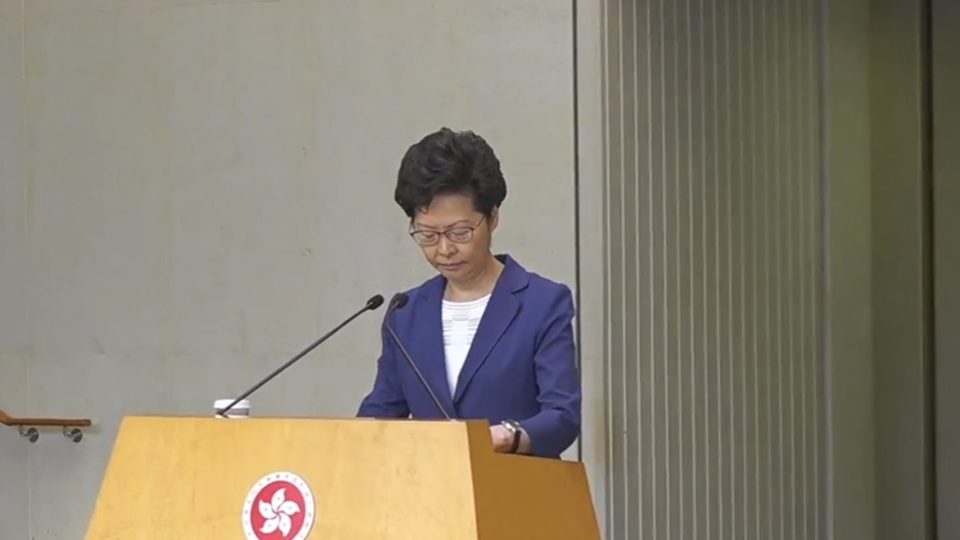Hong Kong’s embattled leader Carrie Lam said today that she would not rule out accepting help from mainland China in tackling increasingly violent pro-democracy protests.
The city has been gripped by four months of rallies, and last weekend saw much of the city grind to a halt as masked demonstrators took to the streets in defiance of a controversial ban on face coverings.
Lam’s decision last Friday to invoke colonial-era emergency powers — not used for half a century — to impose the ban sparked some of the most violent scenes since the crisis began, as hardcore protesters trashed dozens of subway stations, vandalized shops with mainland China ties, built fires, and blocked roads.
As much of the city returned to work today after a three-day weekend, Lam told reporters that while she believes the city’s authorities can cope with the unprecedented troubles, China could be called upon if the situation becomes “so bad.”
“At this point in time, I still strongly feel that we should find the solutions ourselves. It is also the position of the central government that Hong Kong should tackle the problem on her own.
“But if the situation becomes so bad, then no options can be ruled out if we want Hong Kong to at least have another chance.”
Lam has faced widespread criticism over her decision to ban face masks — ubiquitous in Hong Kong since a deadly SARS outbreak in 2003 — and thousands of Hongkongers flouted the prohibition during an unsanctioned mass march on Sunday.
So far two people — a male university student and a 38-year-old woman — have been charged with illegally wearing masks, and supporters wore their own face coverings during a court appearance on Monday.
The two were charged with unlawful assembly, which carries up to three years’ jail time, and with defying the mask ban, which has a maximum one-year sentence. Both were released on bail.
Lam told journalists today it was “too early” to say whether the anti-mask law was effective or not.
“I’m sure you’ll agree that for any new policy or new legislation, it will take time to be effectively implemented,” she said.
Lam also would not be drawn on a suggestion by one of her cabinet members, the veteran pro-Beijing politician Ip Kwok-him, that Hong Kong may curb access to the internet in a bid to contain the protests.
The leader insisted she was “very committed” to using political, legal, and policy instruments, including dialogue, to address some of the “deep-seated problems” in the city.
Thirteen of the city’s subway stations remained closed today, and the MTR Corp said the entire network would close hours early at 8pm.
According to Hospital Authority figures, 10 of the 13 people admitted to hospital over the weekend were in a stable condition on Tuesday, while three had been discharged.




